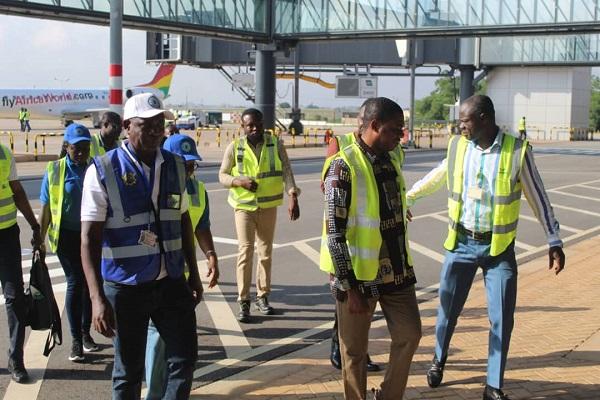BPSR seeks integration of emerging technologies into governance
The Bureau of Public Service Reforms (BPSR) has emphasised the need for Nigeria to begin deploying emerging technologies from Artificial Intelligence (Al) and Machine Learning (ML) to Robotic Process Automation (RPA) and Blockchain into government operations for effective service delivery.
It noted that the Bureau in partnership with the Nigerian Communications Commission (NCC), is actively working to integrate Distributed Ledger Technologies into the operations of MDAs to simplify routine tasks, secure sensitive data, and optimise resource allocation for more effective service delivery.
The Director-General of BPSR, Dr Dasuki Arabi, who stated this at the ITGov 2025 with the theme: “Advancing Government Operations Through Digital Transformation, “ in Abuja, noted that in today’s rapidly evolving digital landscape, IT automation has become not just a tool, but a strategic imperative for modern governance from eliminating bureaucratic bottlenecks to improving service delivery and accountability, adding that automation is at the very heart of the transformation journey embarked upon.
He stressed that in vast and diverse Nigeria, automation provides a unique opportunity to close service delivery gaps and promote inclusive development.
Arabi pointed out that automated systems designed with scale, adaptability, and local context in mind, can ensure that even remote communities receive efficient government services adding that state-level partners can play a critical role in ensuring that.
Arabi, who was represented by the Director of Strategy Innovation Research, Sulola Johnson, observed that it is essential that the Federal and State Governments continue to move in lockstep-aligning priorities, sharing data, and coordinating systems to deliver seamless services to Nigerians, regardless of geography.
Also speaking, the Director-General of the National Information Technology Development Agency (NITDA), Kashifu Inuwa Abdullahi, stressed the need for Nigeria to harness the potential of technology not just as a tool but also as a weapon against inefficiency and injustice.
He noted that digitisation can improve efficiency and reduce waste for the government, adding that digital systems eliminate duplication, minimise human error, and allow for faster processing.
Inuwa said that digital government bridges the gap between rural and urban, young and old, rich and poor adding that if designed inclusively, it ensures no one is left behind.
He stated that with over 122 million Nigerians online, and mobile penetration at over 90 per cent, “we must meet citizens where they are online, mobile, and on-demand.”
Inuwa observed that digital government cannot work in silos as it requires an interoperable system, shared services, and a whole-of-government approach stressing that the country’s Digital Public Infrastructure (DPI) stack must be integrated and inclusive.
In her address, Executive Director of TransterIT Group of Companies, Melanie Ayoola, highlighted the transformative impact of IT automation solutions in boosting government productivity and improving public service delivery across Nigeria.
She said, “Currently, 50 per cent of Nigeria’s largest enterprises rely on ManageEngine for IT service management, enabling rapid response to IT incidents and maintaining maximum workforce productivity. In a government, where thousands of employees operate daily, even small IT disruptions can significantly reduce service delivery effectiveness.”










